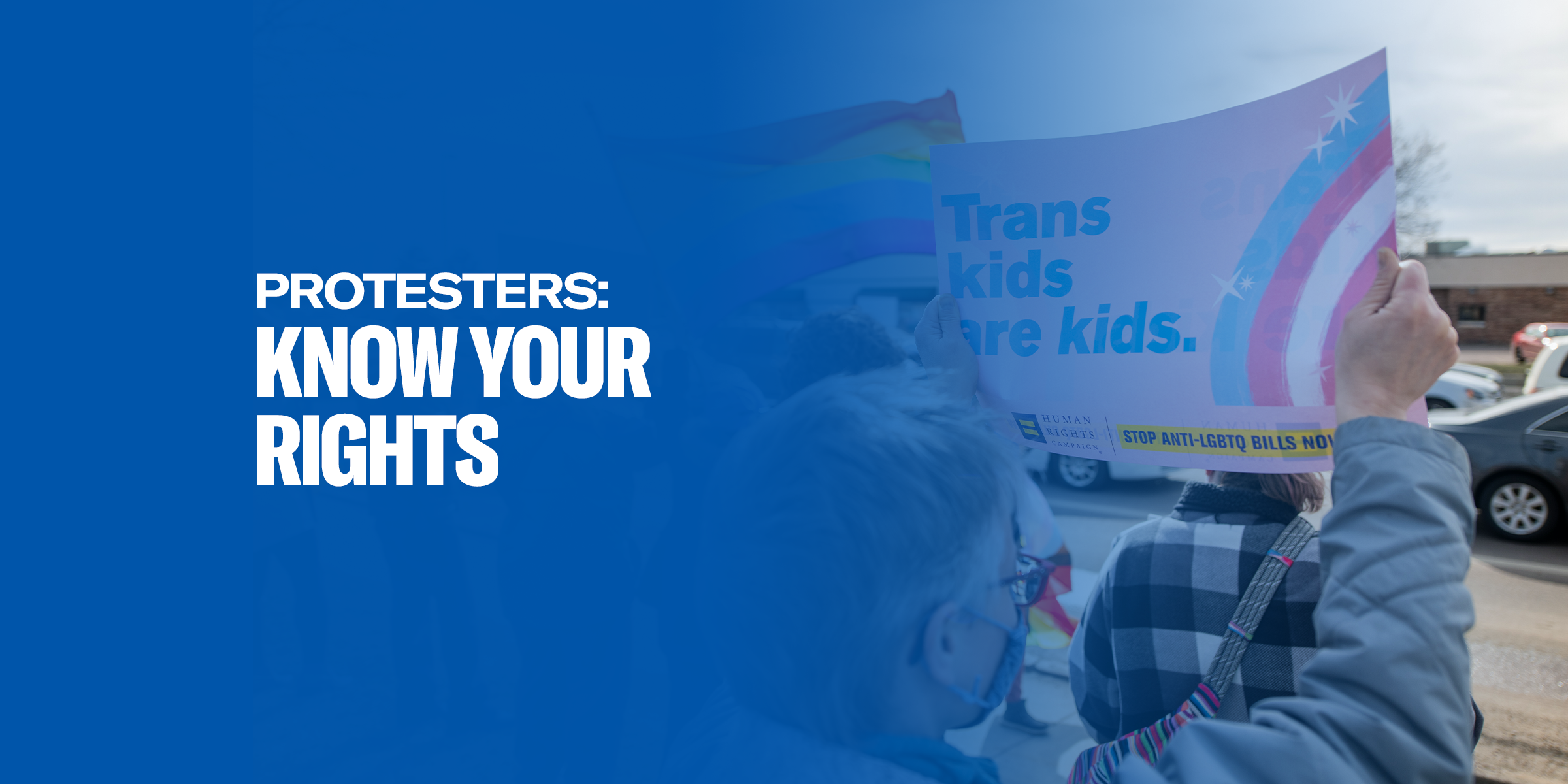Your right to protest is protected by the First Amendment, yet law enforcement are allowed to place narrow restrictions when exercising your right to protest. Know what those are, how to protect yourself, and more on this page.
The First Amendment protects everyone’s right to assemble and express views through protest. However, law enforcement are allowed to place certain narrow restrictions on the exercise of speech rights. So before you head out or log on, make sure you’re prepared by brushing up knowing your rights and how to defend yourself.
Screenshot this page and keep it with you.
- IF YOU GET STOPPED: The right to protest is a fundamental right in the US Constitution and First Amendment. If you are stopped by the police while protesting, ask if you are free to go. If they say yes, calmly walk away.
- IF YOU GET ARRESTED: Don't say anything. Do NOT sign or agree to anything without a lawyer present. Demand your right to a local phone call. If you call a lawyer, police cannot listen.
- ON SOCIAL MEDIA: Remember that police are monitoring social media, too. Anything you post publicly could be seen by law enforcement. Even well-intentioned posts have been used as evidence by prosecutors.
- WEAR A MASK: for your safety during the pandemic, and to prevent against matches with facial recognition. And do not accept water/water from cops. This has been used to collect DNA from activists before.
- ON PHONES: Make sure you have strong passwords on all of your devices, and disable face and touch ID. When possible, put your device on airplane mode or communicate with encrypted messaging apps.
Remember - police cannot take any photo or video from you without a warrant. They cannot delete data off of your devices under *any* circumstances.

